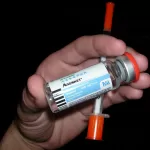Healthcare professionals underscored the critical importance of early detection for congenital heart disease (CHD) among children, emphasizing that the optimal stage for diagnosis is during fetal development, ideally between 16 and 20 weeks of pregnancy.
CHD, a condition present from birth and the most common birth defect globally, affects approximately eight in every thousand infants born annually in India. Despite its prevalence, only 10 percent of CHD cases receive timely treatment, according to medical experts at Amrita Hospital, Faridabad.
Dr. S. Radhakrishnan, Head of Pediatric Cardiology at Amrita Hospital, explained that advanced ultrasound imaging during the 16-20 week period of pregnancy enables healthcare providers to meticulously assess the structure and function of the developing heart, facilitating the early detection of heart malformations.
“This window of opportunity empowers parents with essential information to make informed decisions about their pregnancy and ensures prompt medical intervention if necessary after the baby is born,” Dr. Radhakrishnan emphasized.
Among the various forms of congenital heart disease, ventricular septal defects and atrial septal defects, commonly referred to as “hole in the heart,” are the most prevalent. Meanwhile, Tetralogy of Fallot predominates among infants presenting with cyanosis, or oxygen deficiency.
Experts highlighted the importance of regular prenatal check-ups with obstetricians equipped with advanced imaging technologies to identify fetuses with suspected CHD.
Following birth, CHD can be diagnosed using echocardiography and, in some cases, may necessitate advanced imaging techniques such as CT scans and MRI scans.
Dr. Sushil Azad, Principal Consultant in Pediatric Cardiology at Amrita Hospital, explained that the timing of treatment for CHD diagnosed after birth depends on the severity of the heart issues. Critical cases require immediate attention and treatment at birth, while less severe cases may be deferred for several months or even years.
Treatment options for children with CHD range from medication management to catheter-based interventions and open-heart surgical procedures, Dr. Azad noted, underscoring the need for individualized care based on the nature of the disease.
As medical science continues to advance, early diagnosis and timely intervention remain crucial in ensuring the best possible outcomes for children affected by congenital heart disease.











